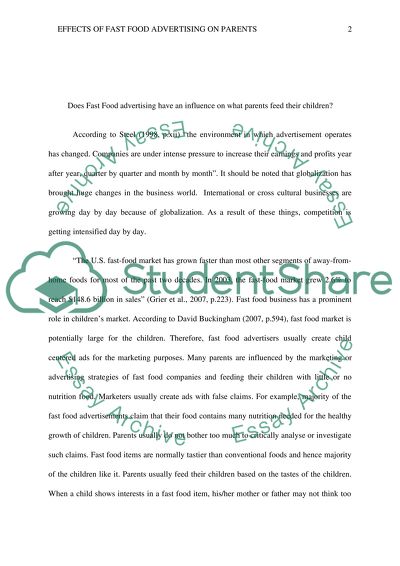Cite this document
(“Does Fast Food Advertising Have an Influence on What Parents Feed Research Paper”, n.d.)
Retrieved from https://studentshare.org/family-consumer-science/1488693-does-fast-food-advertising-have-an-influence-on-what-parents-feed-their-children
Retrieved from https://studentshare.org/family-consumer-science/1488693-does-fast-food-advertising-have-an-influence-on-what-parents-feed-their-children
(Does Fast Food Advertising Have an Influence on What Parents Feed Research Paper)
https://studentshare.org/family-consumer-science/1488693-does-fast-food-advertising-have-an-influence-on-what-parents-feed-their-children.
https://studentshare.org/family-consumer-science/1488693-does-fast-food-advertising-have-an-influence-on-what-parents-feed-their-children.
“Does Fast Food Advertising Have an Influence on What Parents Feed Research Paper”, n.d. https://studentshare.org/family-consumer-science/1488693-does-fast-food-advertising-have-an-influence-on-what-parents-feed-their-children.


